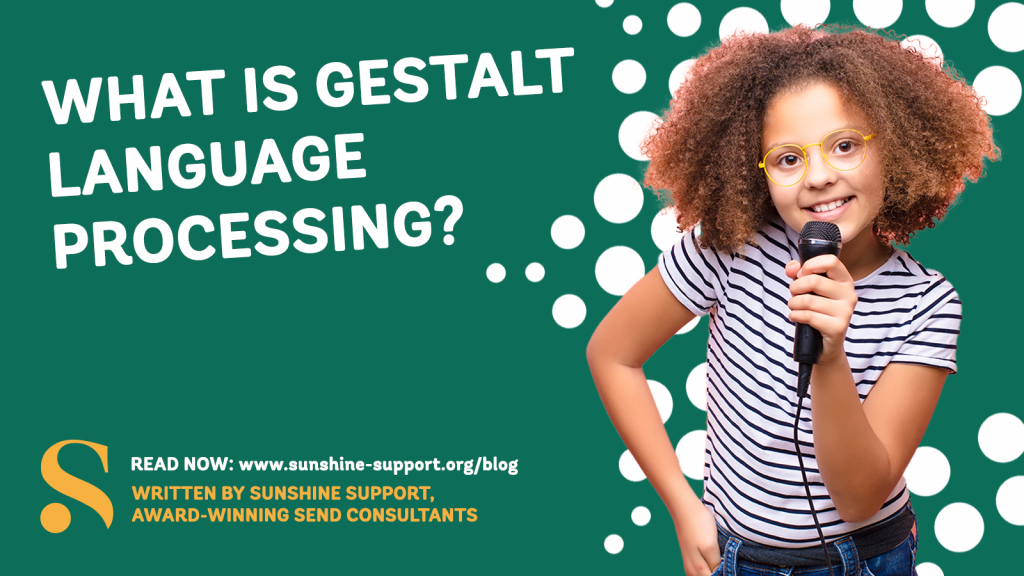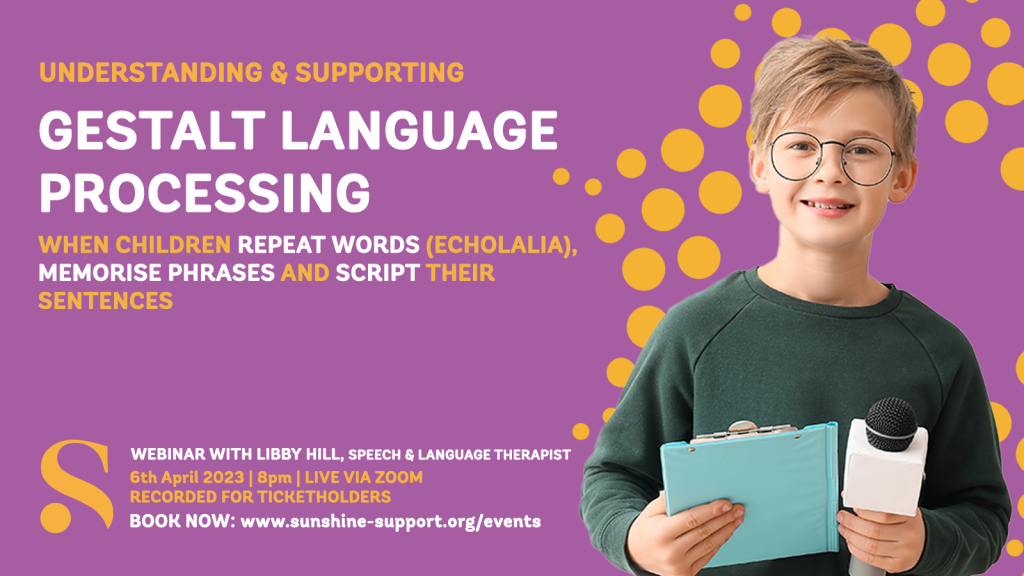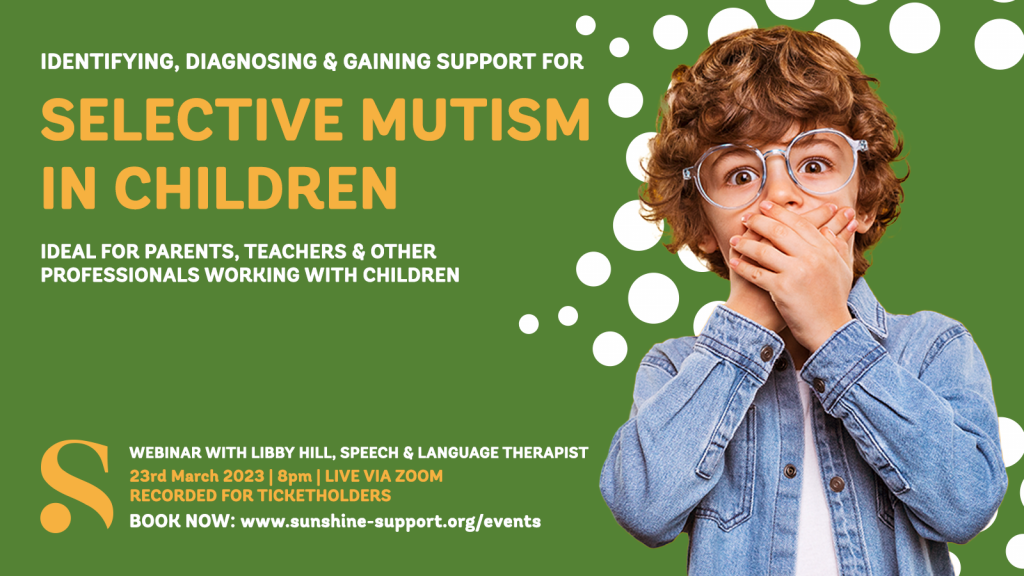
What do we mean by ‘Gestalt Language Processing’?
Typically, there are two ways we develop and process language.
Analytic – when we learn words one at a time, then begin to use it in different contexts, and then eventually learn to combine the word with other words to create phrases and sentences.
Gestalt – when we first learn to memorise complete phrases instead of learning word by word. We then work backwards to learn the meaning of the words. This sometimes presents itself as delayed echolalia.
These two ways of processing are both normal styles of language development. They just may need different approached to nurture them!
Key Indicators of Gestalt Language Processing
- Scripting their sentences/phrases
- Watches and replays media and then repeats specific parts.
- Struggles to engage in conversation, language appears delayed in response.
- Learns to speak in long scrips before single using words.
- Use of rich intonation (animated/lively language or tone of voice)
- Frequently speaking in the third person
- Muddles up pronouns.
Are all Gestalt Processors Autistic?
Gestalt Language Processing is not exclusive to Autism. More researched is needed to pinpoint how common GLP is within the Autistic Neurotype, but most specialists agree it is very common.
GLP can also be present in children with Developmental Language Disorder, ADHD, Dyslexia, Dyspraxia, and neurotypical children.
What is Echolalia?
Echolalia is a term used to describe when a child repeats or mimics words a phrases said by another person.
Delayed Echolalia is when a child repeats something that they haven’t heard recently but has heard before. For example, a line from a film or a song lyric.
Echolalia tends to have meaning behind it. A child may be trying to ask for something, answer a question, self-regulate, or protest something.
What are the Positives of Being a Gestalt Language Processor?
- The ability to perceive more accurate information.
- The ability to process a greater amount of information.
- A creative way to communicate and adapt language.
What Difficulties Come with Being a Gestalt Language Processor?
- Difficulty concentrating subjected to too much stimulus.
- Sensory Overload when subjected to too much stimulus.
- Struggle when trying to connect with peers and communicate with others.
How can we Support a Gestalt Language Processor?
- Always treat their scripting/echolalia as communication (because it almost always is!)
- Utilise what phrases they can say to build on their speech
- Use simple and key words/phrases to make it easier for them to pick up new language







